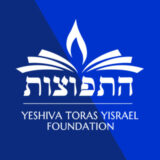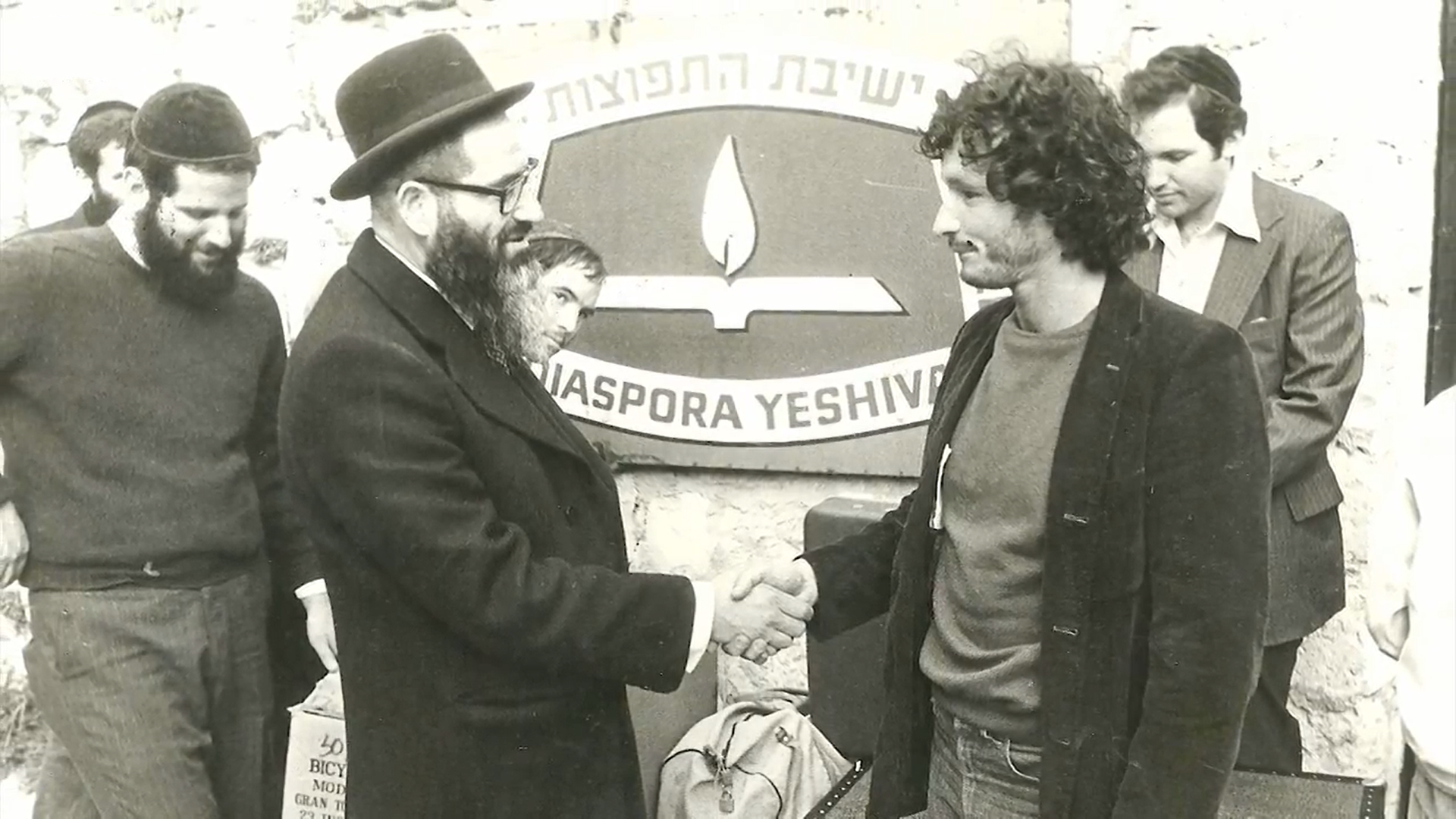Yeshiva Toras Yisrael Foundation
About Our Work
R’ Mordechai Goldstein, ztz”l
How You Can Help
Mount Zion, Jerusalem
About the Diaspora Yeshiva
History & Significance
History & Significance
Yeshiva Toras Yisrael, commonly known as the Diaspora Yeshiva, was started in Jerusalem in 1965 by HaRav HaGaon Mordechai Goldstein zt”l (the “Rebbe”), operating at first out of the Chevron Yeshiva in Geulah, Jerusalem, and later out the Diskin Orphanage in Kiryat Moshe, Jerusalem.
Shortly after the Six Day War, in 1967, Diaspora Yeshiva Toras Yisrael moved to Mount Zion, Jerusalem at the invitation of then Director-General of the Ministry of Religion of the State of Israel, Rabbi Dr. Shmuel Z. Kahane, who, like his father, also served as the Chief Rabbi of Mount Zion, which had remained in Jewish hands throughout the Jordanian occupation of the Old City of Jerusalem.
Through Rabbi Kahane, the Chief Rabbiship of Mount Zion was transmitted to the Rebbe, who established the Yeshiva atop the Martef HaShoah (Chamber of the Holocaust), the original holocaust memorial, in order to elevate the souls of those who were murdered, adjacent to King David’s Tomb, signaling the connection between teshuva and the coming reconstitution of the Kingdom of David under Mashiach, the Son of David, a few minutes to the Kotel (Western Wall).
At the time, there was no such thing as a yeshiva for baalei teshuva (Jews returning to Torah Judaism) regardless of their background and un-affiliation, but with obvious inspiration from Shamayim (Heaven), the Rebbe was convinced the time had come for the creation for such an institution and besiyata dishmaya (with help from Heaven) succeeded in establishing it, paving the way for the many yeshivos for baalei teshuva that followed.
As a long-time student of Yeshivas Chofetz Chaim under Rabbi Henoch Leibowitz, the Rebbe established the Diaspora Yeshiva according to the derech (way) of Chofetz Chaim, following in the footsteps of the Alter of Slabodka and Rabbi Yisroel Salanter, the founder of the Mussar movement, according to which the Diaspora Yeshiva continues to operate to this day, as follows.
- Talmud B’Iyun (in-depth Talmud study), emphasizing the need to fully unfold and understand the subject being studied, from the hava amina (initial thought process) of the Talmud to the maskana (final thought process).
- A rigorous approach to Biblical texts, commentaries, and ethical texts, in which, ideally, deductions from these texts should be “logically and textually compelling”.
- The study of Mussar (Jewish “ethics”) through regular lectures in addition to individual study of Mussar texts. As Rabbi Henoch Leibowitz would continually remind his students, it is even more important to become a mentch (“a good person”) than it is to become a lamden (analytical scholar) and a great pedagogue.
- Inculcating in alumni that, having become Torah scholars, the highest of goals is to enter the field of Harbatzos HaTorah (Jewish education), in order to promulgate the ideals and values of Torah Judaism not only among the Jewish people but among all nations.
- As the Rebbe would always say, “Ach v’rak Torah!”, seeking to inspire complete subservience to Daas Torah (Torah knowledge), knowing that the Torah includes everything, and that Talmudic reasoning is a window into the mind of G-d, so that a person who spends years of dedicated in-depth Talmud study (Talmud actually means “study”) has his mind shaped to “think like G-d,” and thereby becomes empowered to do the right thing in all manner of situations.
- Externals are less important than what’s inside, meaning it is more important to work on oneself and to become a mentch than it is to adopt a particular dress-code, so students are not required to wear black and white, but may come as they are and feel comfortable to grow at their own pace.
In the words of HaRav HaGaon Mordechai Goldstein zt”l,
“If we can build Mount Zion, build our Jewish youth up again, and give that vitalization, the rejuvenation that they need, they will be able to be an example — a moral example — for the whole world, to keep morality, justice, love, care, that the world is looking for, that the world is searching for the Jewish nation, for the Jewish state, to show them in the world. What is the Jewish people? What is the secrets of the Jew? We will show them it’s the Bible, it’s the Oral Law. Here it is! Not only it exists in words, but it exists in practice. And we are the ombudsman for the whole world, and we can stand without blemish, with morality, and justice, and care, and be a nation that’s different, and the nation that we’re supposed to be—that we’re designated by G-d to bring forth into the world. And that is what is meant, ‘From Mount Zion will come forth the Torah.’ The Diaspora Yeshiva is the most serious institution that can be, and we want to play that role.”
For over 50 years, the Diaspora Yeshiva has been embracing baalei teshuva seeking to return to HaShem and His Torah in accordance with the teachings of the Sages of Israel, including thousands of alumni, many of whom have become outstanding Torah personalities.
Listen to an interview with the Rosh Yeshiva, HaRav Yitzchak Goldstein, Shlita, about the history of the Yeshiva and more.

